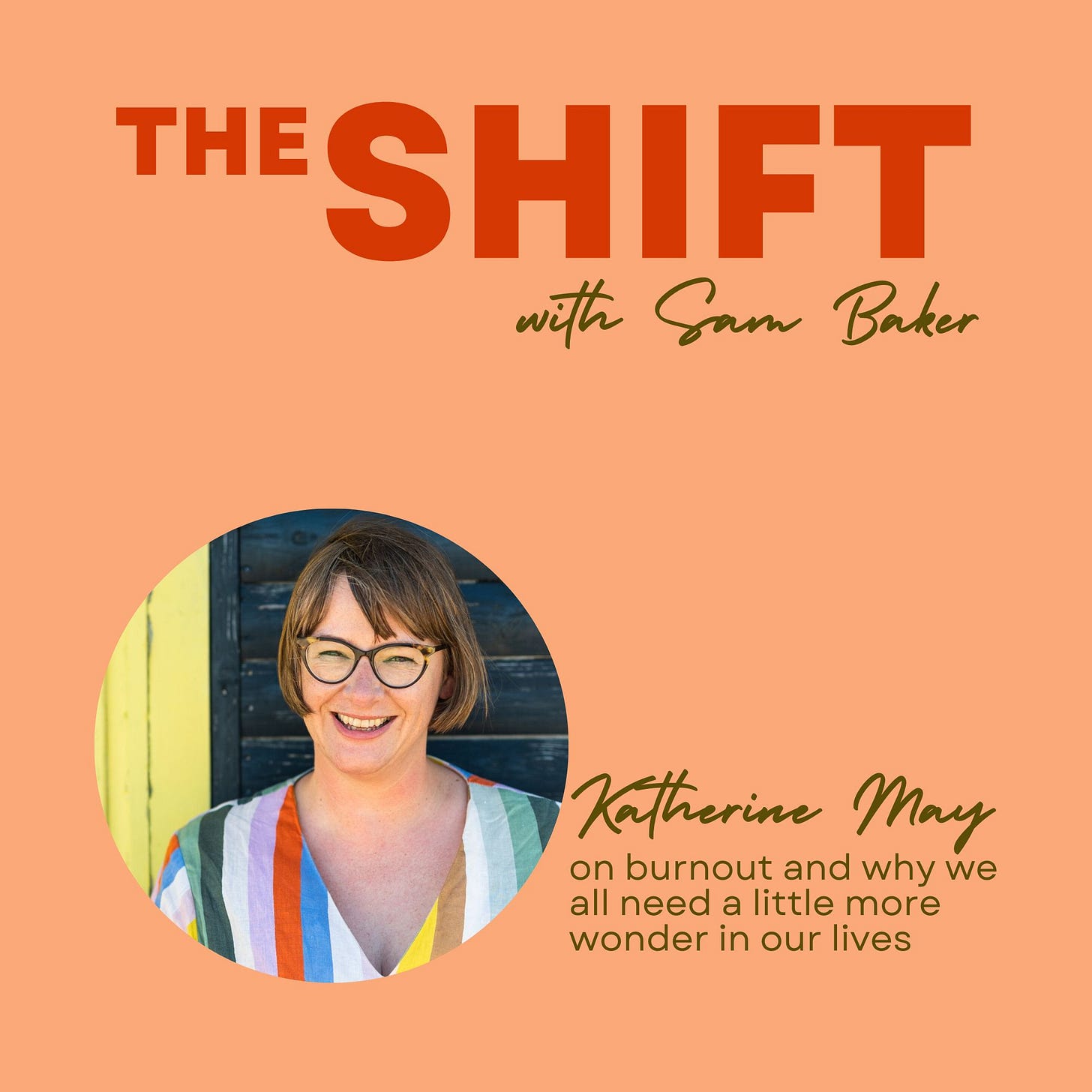Hello,
Okay, okay, I admit it: I completely forgot to send out a newsletter on Sunday. What can I say: it’s been quite a busy couple of weeks. By Sunday, I was about ready to stare into space all day while my autistic brain did its slow processing of all that’s going on.
This week, there’s been yet more to celebrate. Enchantment has made its way into the Sunday Times bestseller list in the UK, has stayed in the New York Times bestsellers, and is still at #1 in the indie bestsellers. It feels amazing be in all those places at once. I can’t quite fathom it.
So anyway, hopefully I can offer a few good things in return for all your support. Firstly, I just can’t resist sharing this article about the villagers in Iceland who have come together to save baby puffins - which, incidentally, have the cutest name ever: pufflings. People are mostly excellent, aren’t they?
There’s also a small, and slightly spontaneous event happening for UK readers. Join me and Alice Vincent for a live online event this Friday to talk about her book Why Women Grow, and my book Enchantment.
It’s free! To join, register here - a replay will be available at the same link immediately after.
And finally, we're in between seasons of How We Live Now, but I’m recording dozens of interviews about Enchantment, so we wanted to share one with you. Sam Baker’s The Shift podcast is always brilliant, and so we’re thrilled to partner with her to share this guest episode in our own stream. In it, I talk about this burnout era and how wonder can help us through it. If you don’t already listen to The Shift, you’re in for a treat. There’s a transcript below.
Find all the episodes of the The Shift with Sam Baker here. You can find more of my recent interviews here.
See you all soon.
Take care,
Katherine
From the transcript
Katherine May
Yeah. I mean, I've thought about this a lot recently because, you know, we are talking about menopause a lot in our society at the moment. One of the things I've noticed about that conversation is that anything that is said that is a kind of discomfort or complaint, now the answer becomes, oh, it must be menopause.
And I've got a little bit of a problem with that, honestly, because I think that we are talking about structural issues and those structural issues impact our experience of menopause. Like that's not to deny the kind of massive biological revolution that our bodies go through and how difficult that is, but they're heightened by how women are living at this stage in their life.
And every middle-aged woman I know, is carrying such a kind of complex burden of care, work, like general responsibility to hold every single thing in your mind and to be in control of it. They're making sure their neighbors are okay. They're, they're checking in on relatives. They are holding down kind of hugely valued and responsible working roles.
They may or may not be parenting at different stages of that cycle, and they're also dealing with a responsibility to stay pretty somehow and thin and like in a way that their husbands do not have to hold, or, you know, I'm assuming they're married, like they're male partners or they're male counterparts. Their male colleagues and I just think that we need to start talking about menopause as part of a bigger structural pattern because my body started going through perimenopause when I was 29, and I can tell you for sure that the anger still landed in my mid forties... the rage.
Sam Baker
That is interesting.
Katherine May
You know, like the biological disruption was the same. But it was the structural differences that brought the rage ultimately, and I, you know, it's almost like we found this new easy thing to blame our difficulties on, which means that we don't have to take that much, much deeper look into how we are running things. It's much easier to say, this is a hormonal disruption, and it'll pass and we can medicate it effectively than it is to say this is a massive hormonal disruption and it lands at a time when we are under unbearable and unsustainable pressure, and the two of those acting together is an absolute nightmare.
Sam Baker
It's so interesting you say that. I mean, I had scribbled down some notes when I was reading Enchantment about the symptoms that you describe coming out of lockdown, and I'm not gonna be able to find them now. I'm always writing notes and then writing so many notes that I can never find the ones I actually want. But that kind of, that combination of like, you lost your ability to read particularly fiction. Mm-hmm. You are, um, feeling that you've run out of charge or, and I, I kind of feel like I'm constantly charged.
I'm like an iPhone that's constantly charged at 20%, just charged enough to get out of the door every day. The brain fog, you know, they're the symptoms of burnout. They're the psychological symptoms many perimenopausal women cite, they're symptoms coming out of lockdown. The bone deep tiredness, they are symptomatic of lots of things that people are experiencing right now.
Note: this email includes affiliate links which means I will receive a small commission for any purchases made
Website | Patreon | Retreat | Preorder: Enchantment UK /US | Buy: Wintering UK / US | Buy: The Electricity of Every Living Thing UK / US







Between your news and the pufflings, I hardly know what do do with so much joy. x
I love good news. Thanks for sharing, I needed some today ;)